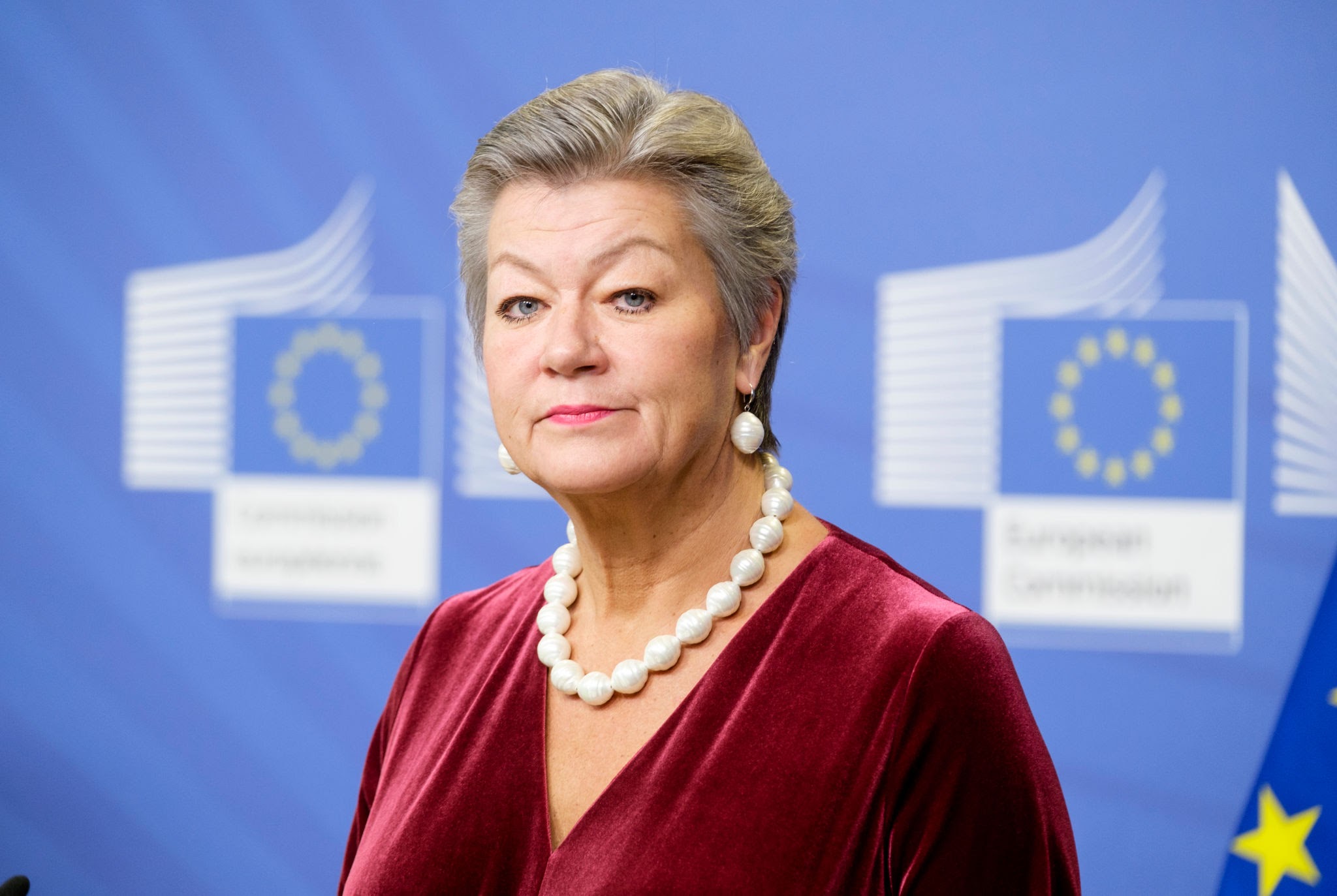EU Appoints Ylva Johansson as Special Envoy for Ukrainians in Europe

The European Commission has tapped former Home Affairs Commissioner Ylva Johansson as its new Special Envoy for Ukrainians, a role that will place her at the center of efforts to manage the long-term future of millions of Ukrainian refugees across the European Union, The Gaze reports, citing Polito.
Two EU officials confirmed Johansson’s appointment, stating that the newly created position will focus on overseeing the implementation of the Commission’s strategic framework for the roughly 4.3 million Ukrainians who have sought refuge in the EU since Russia’s full-scale invasion of Ukraine in February 2022.
Johansson, who served as commissioner for home affairs from 2019 to 2024 and is a former Swedish minister, is well-acquainted with the Ukrainian refugee crisis. She has visited Ukraine multiple times, including stops at border camps, and was awarded the Ukrainian Order of Merit last September for her work in supporting displaced Ukrainians.
Her appointment comes on the heels of the European Commission’s recent decision to extend temporary protection for Ukrainian refugees until at least 2026. The Commission has also announced a transition plan aimed at either integrating Ukrainian refugees more permanently into host societies or facilitating their voluntary return once conditions allow.
Migration Commissioner Magnus Brunner said Johansson’s mandate will include enhancing coordination among member states, representing the interests of Ukrainian refugees at the EU level, and overseeing the rollout of new “unity hubs” — jointly operated information centers designed to assist refugees with integration, employment, education, and eventual repatriation.
“Ylva Johansson brings deep experience and a strong commitment to Ukraine,” Brunner noted. “Her leadership will ensure that our practical support reaches Ukrainians in need and that we are ready for the next phase of this challenge.”
While Ukraine has emphasized the long-term goal of repatriating its citizens once the security situation allows, the question of refugee policy remains politically delicate in several EU countries. Some officials have cautioned about mounting “fatigue” in host societies, while others — particularly in Central and Eastern Europe — view Ukrainian refugees as a demographic and economic asset.
Johansson is expected to begin her work immediately, coordinating closely with Ukrainian authorities, EU institutions, and civil society groups to streamline the next chapter of the bloc’s humanitarian and integration response.